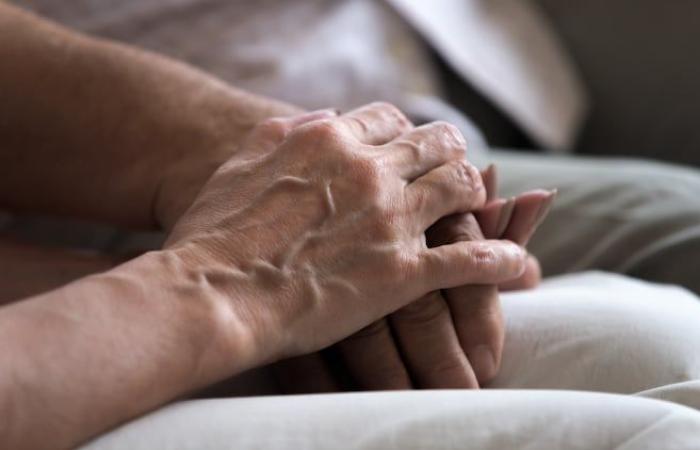Faced with these injustices, 16 national and regional organizations defending the rights and promoting the interests of these people are uniting their voices to denounce the growing inequalities caused by these political choices.
Here are the main programs and measures affected and their consequences:
Reduction of home support services
Home support services should offer personalized care, adapted to the specific needs of each individual whose situation requires it. These fragmented actions are insufficient.
Since the reduction of these services, people or members of their families have reported that the CIUSSS and CLSCs only make minor corrections, on a case-by-case basis, to alleviate certain situations. This support remains insufficient and accentuates local and regional disparities.
Return to 1991 scales for the Family Support program
The Family Support program offers subsidies to help caregivers, such as parents of children with special support needs, obtain periods of respite. This support is essential to avoid burnout and allow families to continue supporting their loved ones at home.
However, the amounts allocated are based on scales established in 1991, which do not reflect current living costs or the needs of families.
Parents and caregivers must therefore give up moments of respite. This compromises the ability of families to keep their loved ones at home, increasing the risks of institutionalization.
Suspension of the Home Adaptation Program (PAD)
The PAD finances work such as the installation of ramps, elevators or adapted showers, allowing people with disabilities to live independently at home. The suspension of this program prevents those affected from carrying out this essential work.
Currently, by suspending this program, these people risk injuries or falls at home. Costs to the healthcare system will increase due to preventable accidents due to hospitalizations.
Reduction of Work Integration Contracts (CIT)
CITs offer, among other things, financial support to employers who hire people with disabilities.
By reducing this measure, the government is slowing down the employment inclusion of people with disabilities, who are already under-represented in the labor market.
The consequences of the cuts are serious and sometimes irremediable
Also, these cuts further isolate people affected by government decisions, particularly women and children, and promote a climate of violence and mistreatment against them. Due to a lack of suitable services, our organizations also report that some people are considering medical assistance in dying, due to a lack of adequate solutions.
The government is forcing people with disabilities and their loved ones to pay additional fees to access essential services. These charges worsen inequalities, because these people already face high expenses linked to their condition. They must forego necessary services due to lack of means to bear the additional costs.
Let’s correct the situation
Given that the cuts observed affect several ministries, we are directly calling on the Prime Minister of Quebec, Mr. François Legault, to quickly correct the situation. On behalf of everyone represented by our broad coalition, we demand the immediate reversal of all cuts and the restoration of affected public services, already of insufficient quality and quantity. We call for the organization of public consultations bringing together the government and civil society in order to find fair solutions for all.
These measures are inevitable to reaffirm Quebec’s commitment to its most vulnerable citizens. It is imperative that the government take the necessary measures to guarantee that every Quebecer, regardless of their living conditions, can live with the services necessary for their well-being.
Together, let’s build a society that promotes inclusion and dignity.
Signatories
Michel Gaudet, vice-president, Confederation of organizations for disabled people of Quebec (COPHAN)
Pierre Lynch, president, Quebec Association for the Defense of the Rights of Retired and Pre-Retired Persons (AQDR)
Paul G. Brunet, President, Council for the Protection of the Sick
Amélie Duranleau, general director, Quebec Society for Intellectual Disability (SQDI)
Carole Lévesque, general director, Regroupement des organizations de people handicapped du Bas du rivière (ROPHBF)
Carolyne Lavoie, project manager, Répit Québec
Christiane Vincent, director, KRTB Federation for Disabled People
Dominique Salgado, Director General, Action Committee for People Living with Disabilities (CAPVISH)
Hugo Vaillancourt, collective defense agent of rights, Tied
Jasmin Lemieux-Lefebvre, coordinator, Living with Dignity Citizen Network
Lili Plourde, general director, Quebec Autism Federation (FQA)
Marjolaine Tapin, general director, Group of associations of craniocerebral traumatized people of Quebec (Connexion TCC.QC)
Rohini Peris, President and CEO, Association for Environmental Health of Quebec and Canada
Selma Kouidri, Director General, National Institute for Equity, Equality and Inclusion of People with Disabilities (INEÉI–PSH)
Steven Laperrière, general director, Regroupement des activists pour l’inclusion au Québec (RAPLIQ)
Sylvie Tremblay, Provincial grouping of user committees (RPCU)
Line Beauregard, president, International Network on the Process of Production of Disability (RIPPH)






